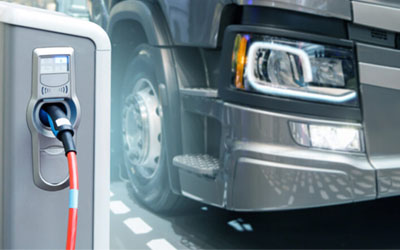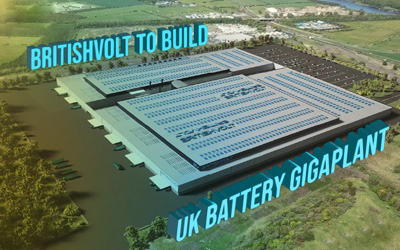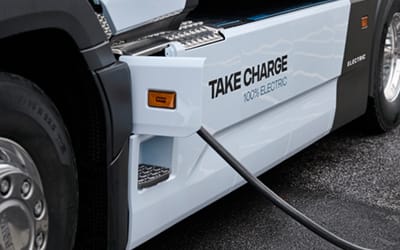UK Electric Vehicle Battery Factory
In a groundbreaking development, Tata, the parent company of Jaguar Land Rover (JLR), has officially announced plans to construct a state-of-the-art £4 billion electric vehicle battery factory in the United Kingdom. This forthcoming gigafactory, which will be one of the largest in Europe, is set to be located in Somerset. With an impressive annual production capacity of 40GWh of cells, it will primarily manufacture batteries for JLR while also extending its services to supply other automotive manufacturers. The anticipated commencement of production is slated for the year 2026.
Boosting the UK Automotive Sector
 Prime Minister Rishi Sunak has hailed this decision as a significant vote of confidence in the UK. He emphasized that Tata Group’s choice to establish its new gigafactory outside of India underscores its faith in the country. Sunak commented, “This will be one of the largest ever investments in the UK automotive sector.” He further noted that this venture would not only create thousands of skilled job opportunities for Britons but also reinforce the UK’s position in the global transition towards electric vehicles, having an electric vehicle battery factory in the UK ultimately fostering economic growth in clean industries of the future.
Prime Minister Rishi Sunak has hailed this decision as a significant vote of confidence in the UK. He emphasized that Tata Group’s choice to establish its new gigafactory outside of India underscores its faith in the country. Sunak commented, “This will be one of the largest ever investments in the UK automotive sector.” He further noted that this venture would not only create thousands of skilled job opportunities for Britons but also reinforce the UK’s position in the global transition towards electric vehicles, having an electric vehicle battery factory in the UK ultimately fostering economic growth in clean industries of the future.
Job Creation and Economic Impact
 Tata’s electric vehicle battery factory in Somerset is expected to generate approximately 4,000 jobs within the UK and contribute to the creation of thousands more employment opportunities in the broader supply chain. Natarajan Chandrasekaran, Chairman of Tata Sons, expressed his optimism, stating, “Our multi-billion-pound investment will bring state-of-the-art technology to the country, helping to power the automotive sector’s transition to electric mobility, anchored by our own business, JLR.”
Tata’s electric vehicle battery factory in Somerset is expected to generate approximately 4,000 jobs within the UK and contribute to the creation of thousands more employment opportunities in the broader supply chain. Natarajan Chandrasekaran, Chairman of Tata Sons, expressed his optimism, stating, “Our multi-billion-pound investment will bring state-of-the-art technology to the country, helping to power the automotive sector’s transition to electric mobility, anchored by our own business, JLR.”
Tata's Commitment to the UK
Highlighting Tata’s extensive interests in the UK, which extend beyond JLR, the company is known for its significant presence in the steel industry, including the Port Talbot plant in South Wales. This reaffirms the company’s dedication to the UK and its commitment to various sectors such as technology, consumer goods, hospitality, steel, chemicals, and automotive.
Collaborative Efforts with the UK Government
 Natarajan Chandrasekaran expressed gratitude to the UK Government for its collaborative efforts in facilitating this investment. He acknowledged the government’s support in making this electric vehicle battery factory project a reality.
Natarajan Chandrasekaran expressed gratitude to the UK Government for its collaborative efforts in facilitating this investment. He acknowledged the government’s support in making this electric vehicle battery factory project a reality.
Industry Enthusiasm
Mike Hawes, Chief Executive of the UK’s Society of Motor Manufacturers and Traders (SMMT), described Tata’s announcement as a “shot in the arm” for the UK car industry, the national economy, and British manufacturing jobs. He emphasized the importance of producing batteries in the UK to anchor long-term vehicle production and called for further efforts to strengthen the electric vehicle battery factory supply chain.
Milestone Moment for the UK
Jon Lawes, Managing Director of Novuna Vehicle Solutions, hailed Tata’s decision as a “milestone moment” for the UK’s journey to establish resilient, domestic supply chains necessary for scaling up electric vehicle battery production. He underlined the significance of reducing reliance on external markets and mitigating the long-term impact of EU tariffs.
Addressing Global Disparities
While China currently dominates global electric vehicle battery factory manufacturing, this move by Tata is seen as a step toward reducing the UK’s reliance on external markets. It is particularly important in light of the EU’s 35 open, under-construction, or planned battery plants, in contrast to the UK’s limited capacity.
Calls for Further Action
 Richard Hebditch, UK Director of Transport and Environment UK, welcomed Tata’s decision but stressed the need for more investments in the electric vehicle battery factory industry. He pointed out that while France has four electric vehicle battery factory the UK has only secured its first. He urged the UK to secure the entire EV supply chain, from processing to critical metals to recycling, to compete on a global scale. Additionally, Hebditch called for stronger ties with the EU to ensure tariff-free trade in EVs.
Richard Hebditch, UK Director of Transport and Environment UK, welcomed Tata’s decision but stressed the need for more investments in the electric vehicle battery factory industry. He pointed out that while France has four electric vehicle battery factory the UK has only secured its first. He urged the UK to secure the entire EV supply chain, from processing to critical metals to recycling, to compete on a global scale. Additionally, Hebditch called for stronger ties with the EU to ensure tariff-free trade in EVs.
Ensuring Sustainable Growth
Suzanna Hinson, Battery Workstreams Lead at the Green Finance Institute, emphasized the importance of further financial support for the thriving battery industry in the UK. She called for a holistic and sustainable critical mineral strategy and suggested reactivating production scrap and end-of-life batteries within the UK’s borders as an opportunity to support the country’s net-zero commitments.
In conclusion, Tata’s £4 billion investment in the UK’s electric vehicle battery factory marks a significant milestone in the nation’s journey towards sustainable and innovative mobility solutions. This ambitious project not only promises economic growth and job creation but also positions the UK as a key player in the global electric vehicle market. However, it is clear that further steps and investments are needed to solidify the country’s position and ensure long-term competitiveness in the industry.
SARR Logistics UK are very focused on the environment and the impact that global logistics has on our planet that is why we fully back electric vehicles and when possible we will use companies who offer these services and also hold the same ethical principles that we do.








